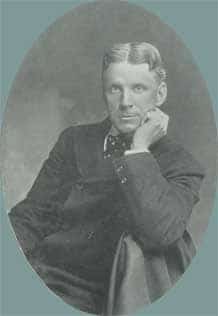What Type of Preaching is Necessary Today for a Spiritual Awakening?
by Rev. David T. Myers
Our question in the title is a key one. We have read in history of various revivals of religion which took place in our country from her earliest days, including the first great awakening under George Whitefield, Gilbert Tennent, Jonathan Edwards, and Samuel Blair. Samuel Blair? Yes, Samuel Blair.
Blair was born in Ireland in 1712, and brought to America in his youth. He was a Log College graduate, and licensed by the Presbytery of Philadelphia in 1733. He became the pastor in New Jersey in 1734. Five years later, he was issued a call from Faggs Manor Presbyterian Church, just south of Cochranville, Pennsylvania. The church had been founded in 1730, and had been ten years without a shepherd. Rev. Blair was led to receive the call and came to this church.
He had been here for four months, commenting that religion lay as it were a-dying. He preached but four months when a powerful revival of religion occurred in the church and surrounding community on August 6, 1744. Writing himself later on what type of preaching the Holy Spirit was pleased to bless, he said,
“The main scope of my preaching was, laying open the deplorable state of man by nature since the fall, our ruined, exposed case by the breach of the first covenant, and the awful condition of such as were not in Christ, giving the marks and characters of such as were in that condition, through a Mediator, with the nature and necessity of faith in Christ the Mediator. I labored much on the last mentioned head, that people might have right apprehensions of the gospel method of faith of life and salvation. I treated much on the way of a sinner’s closing with Christ by faith, and obtaining a right peace to an awakened, wounded conscience; showing that persons were not to take peace to themselves on account of their repentings, sorrows, prayers, and reformations, not to make those things the grounds of their adventuring themselves upon Christ and His righteousness, and of their expectations of life by Him, . . . but by an understanding view and believing persuasion of the way of life, as revealed in the gospel, through the surety-ship, obedience, and sufferings of Jesus Christ, with a view of the suitableness and sufficiency of that mediatory righteousness of Christ for the justification of law-condemned sinners; and thereupon freely accepting Him for their Savior. I endeavored to show the fruits and evidences of a true faith.”
To be sure, other voices had been added to such preaching of the gospel. Four years before this year, in May and November of 1740, George Whitefield preached the gospel before 12,000 persons on the grounds of Faggs Manor Presbyterian Church. Great spiritual results occurred on these occasions as well.
Today, the church continues and is the second oldest Presbyterian church in the Presbyterian Church in America. Only the name has changed, to Manor Presbyterian Church.
Words to live by: Pray much for the teaching elder and congregation that there be another outpouring of the Spirit of God upon your church, its pastors, the Session of Elders, its families, and the entire denomination. In fact, make it your personal prayer, “Lord, begin a revival of your people, and Lord . . . begin it in me.”

